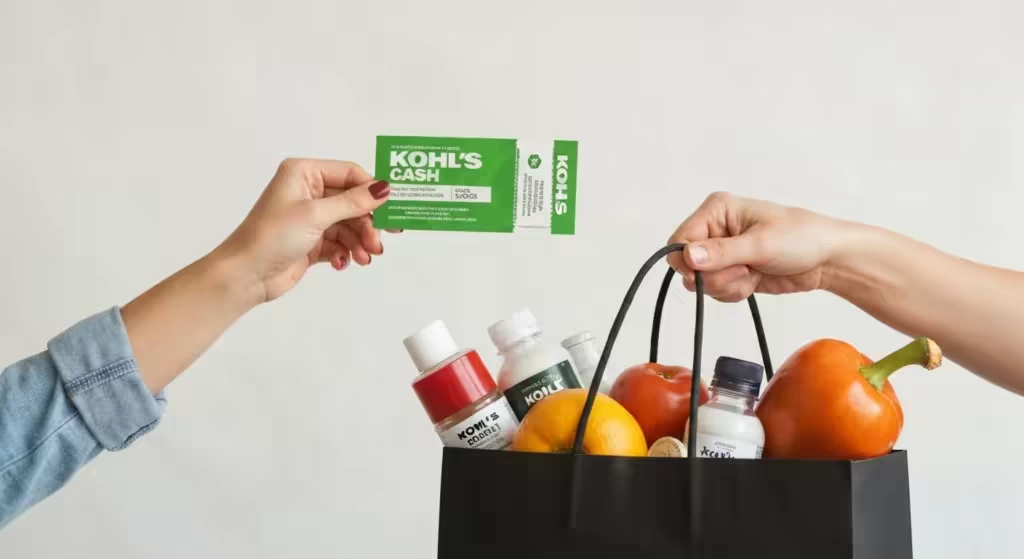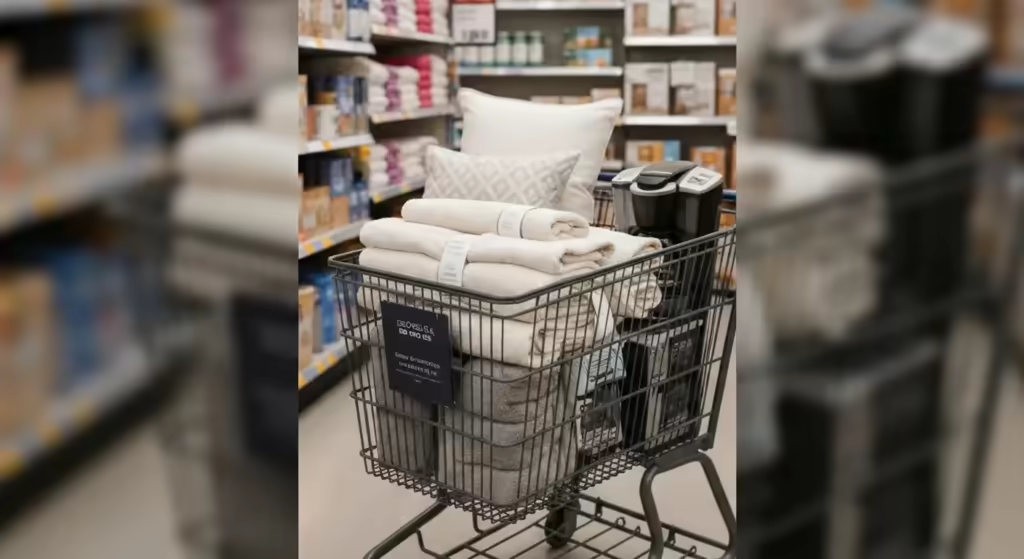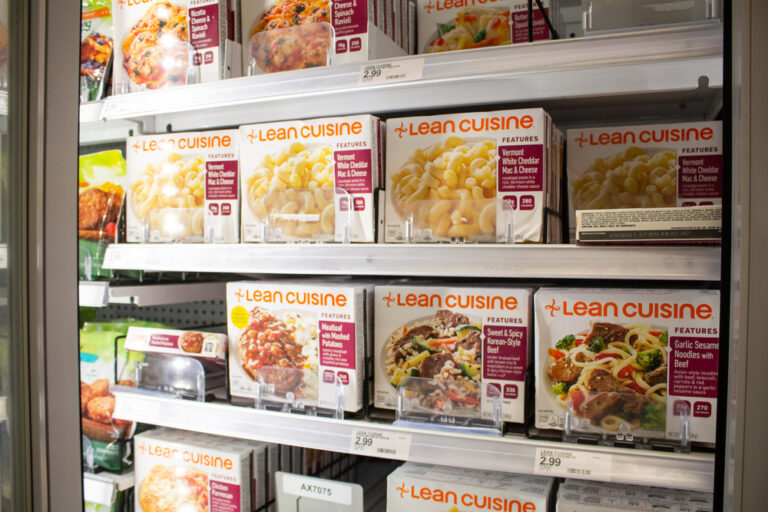Do you know what the worst Dollar Store products are to avoid?
Did somebody notice that most of the prices from Dollar Stores increased from $1 to $1.25? I know that you’ll probably be tempted to say, “But it isn’t a fortune!”. While this is 100% true, that quarter adds up quickly across an entire shopping basket. It’s a subtle psychological trick; the low price of individual items encourages us to fill our carts without a second thought. Everything seems like a bargain, so we buy things we don’t even need. When you get to the cashier, you’re often surprised to be paying a ton of money for a collection of low-quality products that won’t last.
I just made another trip to Dollar Tree shops, where everything is priced at $1.25 or less, and I was itching to take another peek at everything on the shelves. It’s a fascinating, and sometimes alarming, landscape of consumer goods. And what can I say? One of the things I recommend from the bottom of my heart is to carefully compare the pricing and packaging of the products with those from other stores. Don’t just look at the shelf price; calculate the unit price—the cost per ounce, per sheet, or per item. You’ll often find that the smaller, dollar-store package is actually more expensive per unit than a larger size at a regular grocery or big-box store. This simple bit of math can save you a surprising amount of money.
With the help of financial experts, consumer advocates, and seasoned budget bloggers, I made a list of some of the worst Dollar Store products. These are the items that consistently offer poor value, questionable safety, or just plain disappointing performance. Let’s take a look together and learn how to shop smarter, not just cheaper:

1. Tools
One of the worst dollar store products to avoid is tools, without a doubt. Why? Because no matter if you’re a handyman or a casual DIY lover, you’d still like a set of tools you can put your trust in. A tool that fails mid-job is not just an inconvenience; it can be a safety hazard. The savings on a socket wrench, for example, will quickly vanish if the cheap metal strips or snaps, making a simple repair vastly more difficult and potentially damaging the very thing you’re trying to fix. Additionally, professional shoppers and trade experts unanimously advise us to avoid the tools area of the dollar store. The tools found in dollar stores are often of inferior quality, made from soft, cheap metals, and have an extremely short lifespan.
Think about items like paint brushes, screwdrivers, and tape measures. Dollar store paint brushes will shed bristles into your fresh paint, ruining the finish. Screwdrivers will have tips that strip the moment you apply any real torque. Pliers won’t grip properly, and hammers have been known to have heads that loosen and fly off. These are just some of the tools that you should purchase from a dedicated hardware or home improvement store. It will cost a bit more upfront, but it will be worth it in the long run when your tools perform reliably and safely for years, not just for a single, frustrating afternoon.
2. Liquid detergents
With all these skyrocketing prices, finding reasonable laundry products price-wise has been a genuine challenge for many families. But that doesn’t mean you have to hurry up to the Dollar Stores to purchase them from there. In fact, you could be wasting your money. Liquid detergents should be avoided unless they have a clearly marked expiration date and you know it’s fresh. The active ingredients, like enzymes and surfactants that fight stains, lose their effectiveness with time. A product that has been on the shelf for more than a year, or stored in a hot warehouse, simply won’t work as well. You’ll find your clothes are not as clean or fresh as you’d expect.
Furthermore, many dollar store laundry detergents are significantly more diluted than their name-brand counterparts. This means you have to use more product per load to achieve even a semblance of cleanliness, which completely negates the low initial price. You might pay $1.25 for a small bottle, but if you only get 5 or 6 effective loads out of it, you’re not saving anything compared to buying a concentrated detergent on sale at the supermarket. Your clothes and your washing machine deserve better.
3. Batteries
Batteries that cost $1.25 might sound like a great bargain, but in reality, batteries are consistently ranked among the worst Dollar Store products you can buy. For a long time, frugal websites and experts in dollar stores have cautioned customers against purchasing batteries, particularly the carbon-zinc types often sold there. These are an older, less potent battery technology. In addition to having a dramatically shorter lifespan than modern alkaline batteries, carbon-zinc batteries can and do harm electronics if they leak. That bargain pack could end up costing you a new TV remote or your child’s favorite toy when corrosive acid eats away at the battery contacts.
On my last trip to the Dollar Tree stores, I discovered $1.25 packs of “heavy duty” batteries. They were labeled “Use for low-drain devices,” including clock radios and remote controls, and were manufactured under the e-Circuit and Panasonic brands. Even for these intended uses, their lifespan is disappointingly short. You’ll find yourself swapping them out far more frequently than you would with a quality alkaline battery. I’d personally recommend you check out the price for bulk packs at Costco, Kirkland, or even on Amazon. A large pack of brand-name batteries may seem like a bigger investment initially, but the cost-per-battery and the longevity you get will save you more money and frustration in the long run.
I bought this 8-pack of Duracell batteries a couple of days ago from Amazon for just $14.99. At the moment of writing the article, the price was still the same.
4. Plastic storage
It’s not that all plastic containers are bad for the environment, but the ones from Dollar Stores aren’t exactly good for your food either, and that’s a serious concern. The main issue lies with the type and quality of the plastic used. Experts say that heating these containers—whether we cook in them or use them in the dishwasher or microwave—can cause some plastics to emit toxins like BPA (Bisphenol A) and phthalates, which can leach into your food.
Beyond the chemical concerns, the physical quality is often lacking. The lids rarely create a tight seal, leading to leaks in your lunch bag or fridge, and they allow air in, causing your food to spoil faster. The plastic itself is often brittle and can easily crack when dropped or after a few cycles in the freezer and microwave. I would steer clear of these products unless you intend to use the plastics for storing non-food things like craft supplies, hardware, or office items. For anything that will hold your family’s food, it is doubtful that you would find BPA-free or other “safe” plastics at the dollar shop. Invest in glass containers or reputable, clearly-labeled BPA-free plasticware from another retailer.
5. Paper towels and toilet paper
These are two of the absolute worst Dollar Store products, mainly because of the shockingly poor quality of the paper. I think you’re probably overpaying if you’re purchasing paper towels at dollar stores. Why? It comes down to unit price and performance. The rolls are smaller, with significantly fewer sheets than standard brands. Additionally, if you’re not spending too much, the quality can be even worse, feeling thin and non-absorbent. When calculating your shopping budget, a $1.25 roll might sound like a smart idea, but you won’t be saving money or time if you have to use three or four extra paper towels to wipe up simple spills that one quality sheet could handle.
Regarding toilet paper, the situation is even more dire. If you want to buy it from a dollar store, it may indeed be cheaper per roll, but the quality will also be cheap. One possibility is that you’ll have to purchase off-brand toilet paper, which may be a scratchy one-ply, have fewer fibers, or both. This means you will end up using more TP than usual to get the job done, and both you and your wallet will be losing in this scenario. Poor quality toilet paper can also be rough on your plumbing, as some types don’t dissolve well. In the end, buying in bulk from a warehouse club or waiting for a sale at the grocery store is a far superior strategy for both comfort and value.
Sheesh, God forbid if you have some guests over when you have this sandpaper of TP in your bathroom. A big NO!

6. Beach towels
If you’re looking to pay as little as possible for your beach supplies, please don’t stop at Dollar Stores for your towels! Although it might seem like a bargain to grab a colorful towel for just over a dollar, these towels are of such low quality that they barely function. They are often incredibly thin and made from low-grade cotton or synthetic blends that feel rough and don’t absorb water well at all. You won’t be able to dry off after returning from your hour-long swim with them since they’re so fragile and they just seem to push the water around on your skin.
Moreover, their durability is practically non-existent. After a single wash, they often begin to fray at the edges, the vibrant colors fade dramatically, and they can lose their shape completely. They are also typically much smaller than a standard beach towel, leaving you with little to lie on. For greater quality and a towel that will actually last you the entire summer season, check out Costco, Amazon, or even the clearance section at a department store for your beach towels. A dollar store towel is, unfortunately, a disposable one.
7. Charger cords and electronics
When it comes to devices and electronic accessories from the dollar shop, you must temper your expectations significantly. You get what you pay for, just as you always have, and with electronics, this is a rule to live by. The Dollar Shop has a ton of power cables, headphones, phone stands, and other gadget devices that look appealing in their packaging.
Although the price tag would be tempting and you would want to grab some from the shelves, it’s unclear whether these products are manufactured to a high standard of safety and performance. Many of these items lack crucial safety certifications, such as a UL (Underwriters Laboratories) listing, which ensures they’ve been tested for fire and shock hazards. Why take a chance and buy low-quality charger cords when you’ll be connecting them to your cherished and expensive tablet or smartphone? A poorly made charger can fail to regulate voltage properly, which can permanently damage your device’s battery and charging port.
A couple of months ago, when I was in a hurry and I needed a phone charger ASAP because the original one broke, I stopped by the Dollar Store and bought one. Guess what? After one week of using it, it broke. First, it started charging intermittently, making me think my phone was the problem. Then, it just stopped working altogether. I guess you get what you pay for! It’s a waste of money and a potential risk to your valuable electronics.
8. Toys
If you want to bring a smile to your kid’s face, buying a toy might be the best choice. But please, don’t go shopping for toys at the Dollar Store. Since we all know how kids play with toys—with lots of energy and not much gentleness—it’s important to buy something that can withstand the fun. Even if brand-name toys are typically more expensive than others, at least you can be sure they won’t break too quickly and cause instant tears.
Consider spending a few more dollars at a toy store or major retailer where the quality will be superior and you won’t have to listen to your children crying for hours on end over a toy that shattered within minutes of being opened. Furthermore, toys from the Dollar Store may also be shoddily constructed, posing serious safety risks. There could be little pieces that might easily break off and become choking hazards for small children. Another major concern is the materials themselves; there have been past incidents of dollar store toys containing unsafe levels of lead in their paint or harmful chemicals in the plastic. It’s simply not worth the risk to your child’s health and safety.
9. Perishable and non-perishable food
Oh, and we’re finally at the end of our list of some of the worst Dollar Store products that we all must avoid. Can you hear those munchies and cheap eats calling your name from the shelves? Put on some earphones and try to ignore it! When it comes to food items, you must be an extra-cautious shopper. Unless the item is a brand-name product in a can (in which case it has a longer shelf life than other packaging alternatives), I would approach it cautiously. Handling perishable and packaged foods (including beverages and candies) requires vigilance, as their freshness and quality might be uncertain.
Let’s break it down. For non-perishables like off-brand crackers or pasta, you may find the taste and texture to be subpar. For canned goods, always check for dents and, most importantly, the expiration date. Dollar stores can sometimes be where items nearing their “best by” date end up. For anything perishable like bread or refrigerated items, it’s best to steer clear entirely. These stores may not have the same rigorous standards for storage and turnover as a dedicated supermarket. Instead of falling into the trap of buying questionable food from the Dollar Store, opt for supermarkets or even small stores in your neighborhood. Even if they are definitely more expensive than $1.25, the quality and your peace of mind will speak for itself.
That’s a wrap! This list covers some of the most common offenders, but the core lesson is to always think about value, not just price. Now, can you tell me what the worst Dollar Store products are, in your opinion? Have you ever had a major product fail? And on the flip side, are there any hidden gems you swear by? See you in the comments section down below to share our collective wisdom!
Are you a fan of shopping at Costco? Then you might be interested in reading about their membership: Costco Membership: 9 Free Things You Are Not Utilizing.














